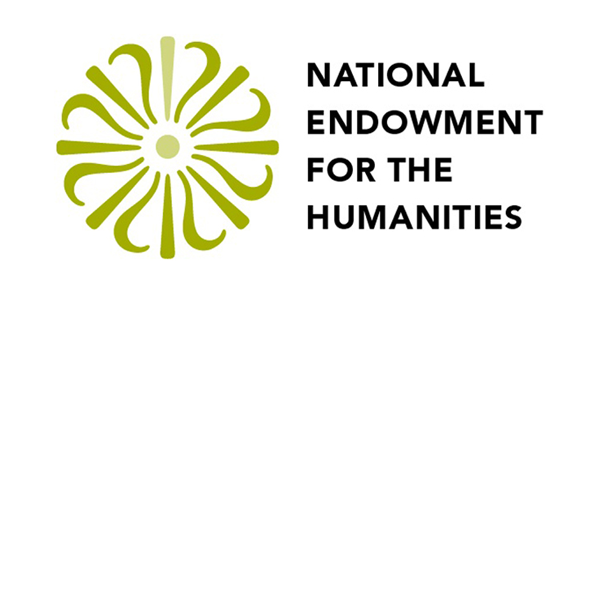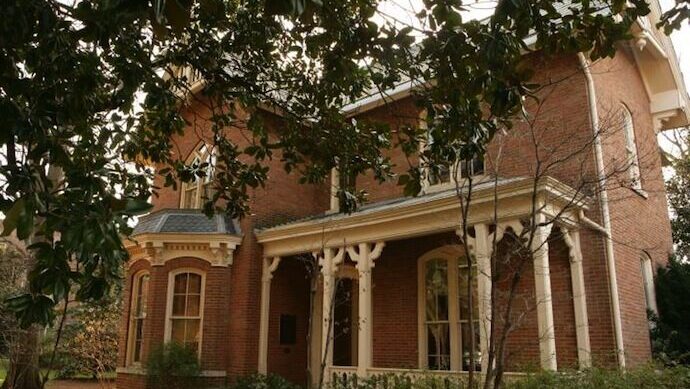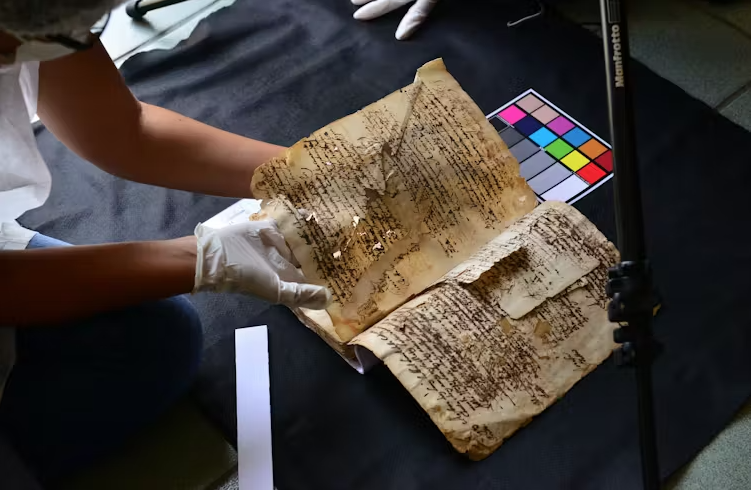

-
$1.8M
NEH Funding at Vanderbilt,
FY 2019–FY 2023 -
$13.7M
NEH Funding Given to Tenn.,
FY 2019–FY2023 -
$480K
NEH Challenge Grant Awarded to VU in 1989
-
$1.9M
Leveraged by Vanderbilt’s 1989 Challenge Grant
The Robert Penn Warren Center for the Humanities
In 1989, the Vanderbilt Robert Penn Warren Center for the Humanities was awarded a $480,000 Challenge Grant from the National Endowment for the Humanities to help establish a permanent endowment for the center. The grant had to be matched 4:1 with funds from the private sector, which helped leverage an additional $1.9 million. This award signified the nationally recognized achievements of the center and helped ensure its long-term future. The center facilitates interdisciplinary research in the humanities and social sciences by hosting annual faculty fellows and convening faculty and graduate students to find both short- and long-term ways to support and promote the humanities at Vanderbilt and beyond. The center does this through its work in three main areas: professional development for graduate and undergraduate students, humanities-led solutions to real-world problems, and community partnerships.
In FY 2023, the Robert Penn Warren Center spearheaded:
- The Humanities in the Real World Fellowships: This program is for undergraduate students of any major to develop critical thinking, storytelling, and communication skills. The program involves gaining experience in civil/legislative processes, analyzing complex problems, and developing program management skills. The Fellows will also learn how to synthesize information and communicate with diverse public audiences through various media.
- Generative AI for the Humanities: The RPW Center created the Generative AI for the Humanities seminar, which introduces novel AI techniques to humanities scholars and provides opportunities to discuss, experiment, and evaluate their potential impacts on research, teaching and outreach. The seminar is co-sponsored by the College of Arts and Science Grand Challenge Initiative for Artificial Intelligence.
- The Nashville Bestiary Project: Engaging the Nashville and Vanderbilt communities in unearthing wild and natural elements persisting in urban settings. Over the course of the year, RPW will develop a range of practices and activities that leverage the humanities, arts and environmental sciences to explain and mitigate the impact of climate change in urban spaces.
NEH Connections Grant
During the fall 2019 semester, the RPW Center was awarded an NEH Humanities Connections Implementation Grant entitled “‘Humanities in Place’: An lmmersive, Place-Based Curriculum for Historic Preservation and Humanities-Centered Land Use at Vanderbilt University.” The nearly $100,000 grant was used for a series of classes and programming in the 2020–23 academic years. This innovative curriculum initiative used Vanderbilt University’s historic Vaughn Home (built in 1875) as a hands-on lab where students developed skills relevant to nonacademic careers in the humanities, such as archival and archaeological research, historic preservation, museum curation, land use and human-centered design, digital humanities, news and public affairs.
This past academic year was the last year of the grant. Over the grant period, the Vaughn Home inspired 19 interdisciplinary courses involving eight faculty and more than 230 students. These hands-on courses have turned the Vaughn home and adjoining parts of campus into a living lab on topics including excavation, digital archaeology, engineering, architectural documentation, history of the American research university, digital storytelling and sustainable development. The work done by these faculty and students has also enabled an exhibition tour of the Vaughn Home called “Hidden Narratives” and will culminate in nominating the home to the National Register of Historic Places.

Vanderbilt slavery archive to reach wider audience through data hub
A digital archive of the oldest records for Africans in the Americas, directed by a Vanderbilt history professor and hosted at the Vanderbilt Jean and Alexander Heard Libraries, will join a new online data hub. This will enable researchers and the public to access and analyze millions of pieces of data from collections across eight institutions, including Vanderbilt. Vanderbilt’s Slave Societies Digital Archive, supported in part by NEH, is the largest digital collection of records for Africans in the Atlantic world, approaching 700,000 digitized images from the U.S., the Caribbean region and Latin America. These records date from the 16th to the 20th centuries and document the history of between six and eight million individuals. The collection is the most extensive serial record of the history of Africans in the Atlantic world and also includes valuable information on the indigenous, European and Asian populations who lived alongside them. This year the archive established new projects in Guadalajara, Mexico, and Matanzas, Cuba; researchers are preparing to launch a new relational database and website with these digitized records.
The SSDA is now recognized on UNESCO’s Slave Route Project Resources list. The SSDA collaborates with local institutions such as Fisk, Middle Tennessee State, and Tennessee State universities, the Nashville Conference on African American History and Culture, and Fort Negley. The SSDA also has online partnerships with the Enslaved project, Walk with Web, FamilySearch, and Native Bound Unbound: Archive of Indigenous Slavery. FamilySearch is the largest genealogical organization in the world and is now indexing SSDA’s Cuban records in consultation with the SSDA team.
Making history more accessible
Vanderbilt faculty and staff have been awarded NEH grants to support their efforts to make history more accessible to the public.
A professor of French was awarded a nearly $150,000 Digital Humanities Advancement Grant from the NEH for the creation of a virtual immersive environment to provide training to students in medieval languages and cultures. Because immersive opportunities like study abroad are not readily available for the teaching of medieval languages, this program addresses this problem through the creation of a virtual immersive environment that allows the user to learn medieval languages as if they were inhabiting an authentic context.
Vanderbilt researchers received a $150,000 grant from the NEH for a collection of oral histories and an archaeological excavation examining a neighborhood in Tennessee founded by Black Civil War veterans. Nashville’s Bass Street Community was formed by Black Civil War veterans and survivors at the foot of St. Cloud Hill in the late 1860s. Descendant testimony in oral histories will guide the excavation of a Reconstruction-era home and two public spaces in the neighborhood. Together, descendants and scholars will revisit questions of U.S. history throughout the Jim Crow era while they explore ways that residents utilized material culture to fortify their precarious status as free Black Americans in the late 19th and early 20th centuries.
Vanderbilt researchers use NEH grant to conduct archaeological imagery survey using AI
A $350,000 grant to develop next-generation archaeological mapping technology will let a Vanderbilt-led research team reveal information about vast settlement systems and human-modified landscapes in the Andes. An associate professor of anthropology is the project director of the research initiative, which will result in the largest archaeological imagery survey in the Western Hemisphere. This three-year NEH Digital Advancement Grant will fund the development of Geospatial Platform for Andean Culture, History and Archaeology, or GeoPACHA 2.0.
The new version of the browser-based geographic information system will offer a continuous view of human settlement and human landscapes across more than 600,000 square kilometers in the central Andes. It will develop and deploy AI to identify archaeological features in high-resolution satellite imagery and corresponding historical aerial photos.
For more information, please contact the Vanderbilt Office of Federal Relations:
Christina West 202-216-4370 | Heather Bloemhard 202-216-4368
federalrelations@vanderbilt.edu
FY 2023